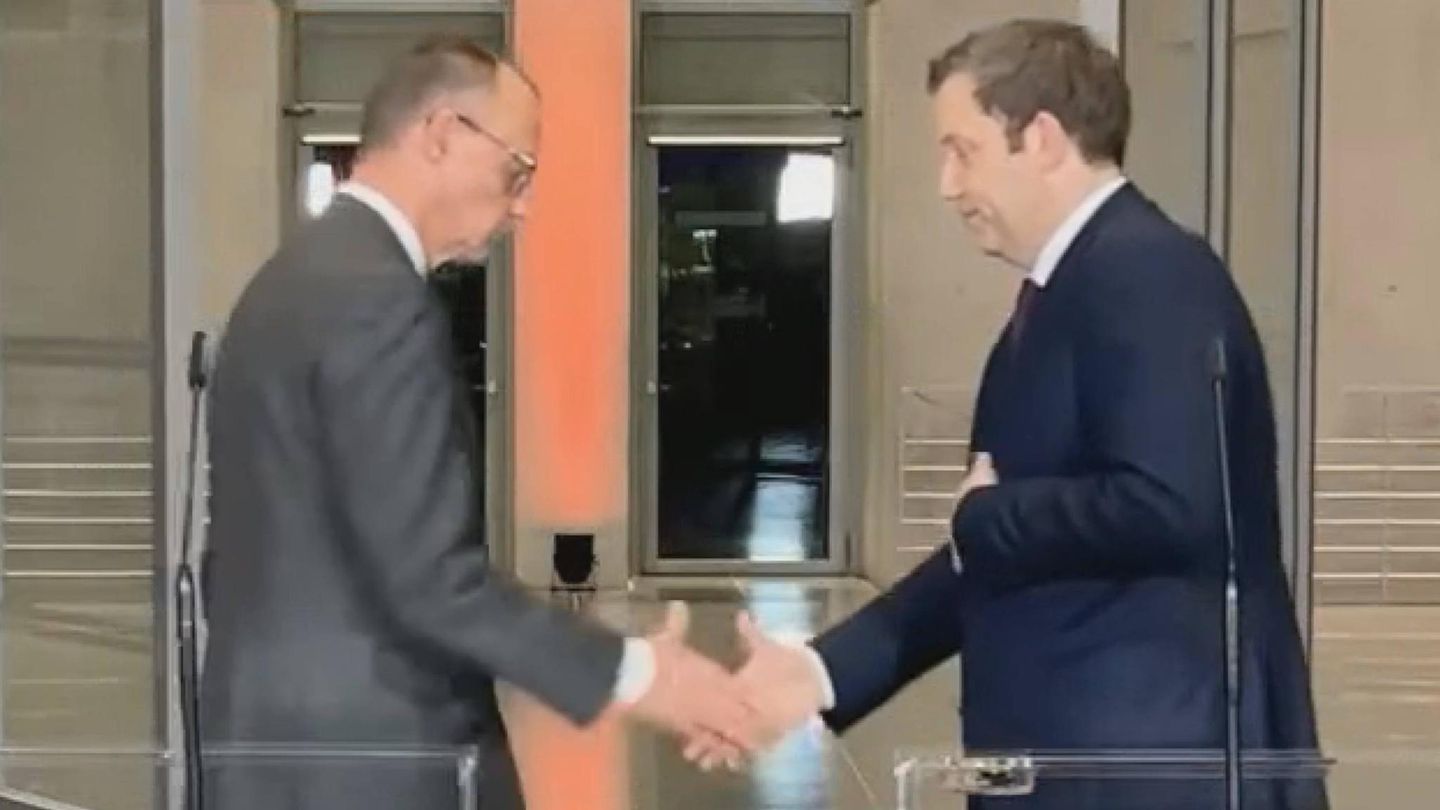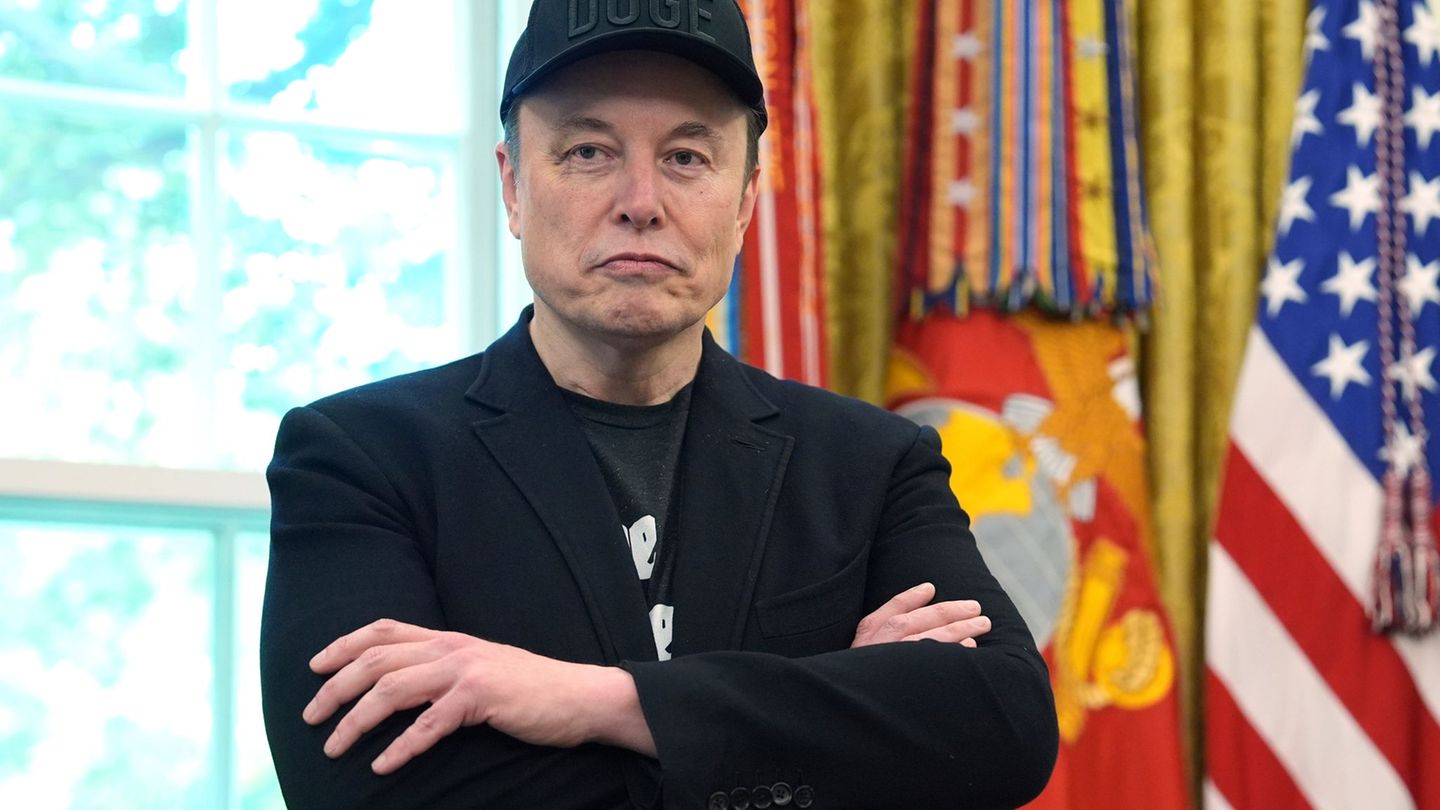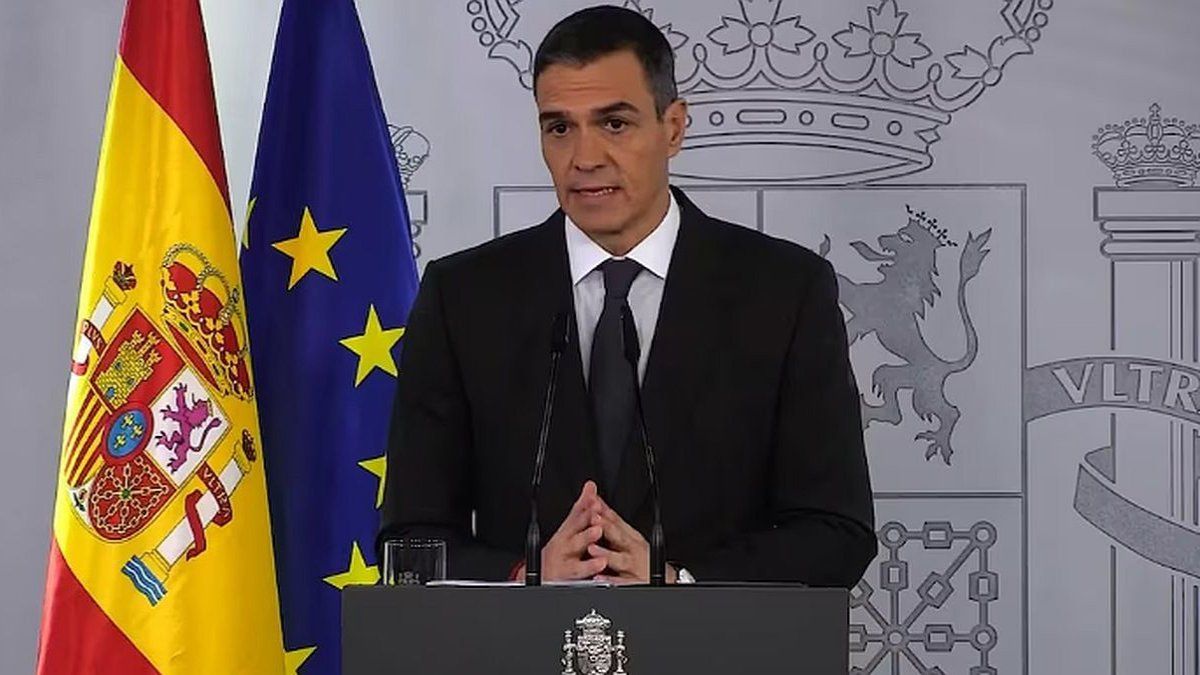For infrastructure and defense
Union and SPD agree on special funds – this is planned with the money
Copy the current link
Add to the memorial list
The Union and SPD agreed on a special fund and a reform of the debt brake in their explorations. The sums mentioned initially appear gigantic.
The Union and SPD agreed nine days after the Bundestag election on a huge financial package. It should pave the way for a black-red coalition that will have to be negotiated in detail in the coming weeks.
In order to be able to put more money in the defense of Germany, the debt brake, which is anchored in the Basic Law, is to be relaxed in the coming days. This was announced by the party leaders on Tuesday evening. In addition, a special pot of 500 billion euros is planned to modernize the infrastructure. Economists praised the plans with which there was again a perspective that the economy was coming on a growth course. The Greens, whose voices are needed for the plans, reacted cautiously.
Special funds for infrastructure should run over ten years
In a short-term press conference by Union and SPD in Berlin, CDU boss Friedrich Merz said that the so-called special fund in infrastructure was created for ten years. SPD-CO boss Lars Klingbeil said that 100 billion of the 500 billion euros should be made available to the federal states. The money is to be used, among other things, for the traffic and energy network, hospitals, educational, care and science institutions as well as for digitization.
After the EU Commission announced a large financial package to promote defense spending on Tuesday morning, the next Chancellor Merz followed in the evening. It must be provided for the defense, which is always necessary. “In view of the threats of our freedom and peace on our continent, we must now also apply to our defense: Whatever IT Takes.”
Specifically, only defense spending of one percent of gross domestic product (GDP) should fall under the debt brake. This enables a strong increase in these expenses, which are no longer capped. With a GDP of around 4,300 billion euros in 2024, one percent would be around 43 billion euros. All defense spending on this will not be counted. The military budget is currently around 52 billion euros. In addition, there are expenses from the Bundeswehr’s 100 billion assets, so that Germany was able to meet the NATO rate of two percent of GDP in 2024.
Greens are needed
“We send a signal to friends and enemies,” said CSU boss Markus Söder. “Germany is there. Germany does not withdraw.” He spoke of a noticeable upgrade. Union and SPD also referred to the recent change of course in the United States. President Donald Trump there wants to stop help for Ukraine in her defense fight against Russia.
Trump also threatens the EU with special tariffs. Merz said that on Wednesday he would talk to Chancellor Olaf Scholz (SPD) about the fact that one wanted to provide an additional three billion euros in military aid for Ukraine.
The Union and SPD want to decide on the planned changes at short notice with the majorities of the old Bundestag. In this, the Union, SPD and Greens come to around 71 percent of the votes, i.e. the necessary two -thirds majority for the steps. “We will now take a look at the suggestions,” said Green Co-Group leader Britta Haßelmann. The Greens have been calling for a reform of the debt brake for years to enable more investments. This was mainly rejected by the Union. “It is important to us a long -term solution of fundamental rules of debt brake. And that in addition to the topic of security, investments in infrastructure, business and climate are sustainably tackled.” Haßelmann accused Merz and Söder not to have included the Greens so far.
Suddenly a different game
The changes now planned would be more difficult to enforce in the new Bundestag. He has to constitute at the end of March, which is why the Union and SPD are pending. A larger reform of the debt brake is then planned by the end of the year. For this, an expert commission should develop a proposal to enable additional investments permanently. The countries should also get debt scope.
Top economist Jens Südekum spoke of a “gamuchanger” of the exploriers and a “massive and good package”. It could end the years of stagnation of the economy, he told the Reuters news agency. “Germany is again economical and militarily capable of action.” Now the infrastructure money would have to flow into the right projects. “Overall, it is about sending a credible signal to the private sector that the state is now making serious with the investment offensive. Only then will construction and craft businesses increase their capacities.”
The projects were well received on the financial market. The German and European equity futures who had previously fallen due to customs worries in the United States. The German Dax Futures were only around 1.5 percent in the minus after it was a minus of 3.5 percent hours earlier. The euro also attracted a lot and was 1.1 percent higher at $ 1.0606.
Timetable schedule
IG Metall boss Christiane Benner also said positively: “Politics understood that now has to be traded quickly and courageously.” Investments in technical and industrial infrastructure, security and defense should not be at the expense of social benefits.
According to Merz, the suggestions are to be brought into parliament in the coming week. In the new Bundestag there is a blocking minority of AfD and Left for decisions for which a two -thirds majority is necessary.
For 13.03. and 17.3 the necessary readings in the Federal Council are planned. The package in the Federal Council is to be negotiated on 21.3.
Note: This article has been updated.
Reuters
EPP / KM
Source: Stern
I have been working in the news industry for over 6 years, first as a reporter and now as an editor. I have covered politics extensively, and my work has appeared in major newspapers and online news outlets around the world. In addition to my writing, I also contribute regularly to 24 Hours World.




